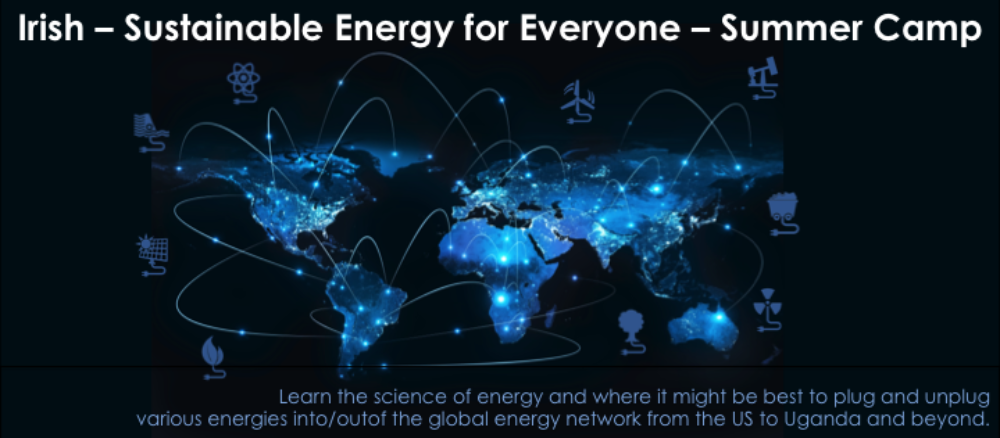The main focus for this Irish Sustainable Energy for Everyone Summer Camp (ISEECAMP@ND.EDU) is three fold. First, your high school student will get a broad energy systems experience. Second, this type of program opens doors and opportunities for students to include on their application to college. Third, students experience what it is like to live on campus at University of Notre Dame.
In addition to this main focus, program fees fund our Energy & Sustainable Development Research Lab within Notre Dame’s Physics Department (50%) and programs in Uganda, Tanzania, Nigeria, Liberia and Haiti (50%). The majority of camps typically fund administration costs, but the majority of instructors in our summer camp volunteer which means are administrative costs go to our colleagues who have difficulty raising R&D funds in their respective country. For example, the Michigan Math and Science Scholars (MMSS) program at University of Michigan costs $4,200 for two weeks and MIT’s Summer Science Program (SSP) costs is $5,450 and their applications are already closed for this year.
Research Lab
This research lab includes socio-technical design research involving hybrid micro-grid and vehicle power management focused within an energy, sustainable development, and averting sixth extinction nexus; physics education and experimental design; global health risks associated with inaccessible, unaffordable and unreliable electricity, sustainable development involving the interconnections between health, education, and economics; renewable energy; and merging traditional with technological skills and micro-grid modeling with uncertainty as well as known variability for robust design and control algorithms of power management. As such, the lab has students from multiple disciplines including physics (complex systems and applied physics), physics education, pre-med, engineering (electrical, mechanical and environmental engineering predominately), business entrepreneurship, and international development. Research Lab Link Here
Work Abroad
The program fees will equally support the research partnerships with Institutions in Uganda, Tanzania, Nigeria, and Haiti that are working towards the co-design, build, and implementation of mini-grids for rural communities in “so-called” developing countries. While projects vary by country, the main focuses include empowering Ugandans, Tanzanians, Nigerians, and Haitians to build energy systems, and treating cancer patients that otherwise could not afford care. For example in Uganda, our collaborators were awarded in 2017 1st place by Uganda’s National Council for Higher Education for their Innovative Energy System Designs based on our collaboration and their amazing implementation and innovation!
